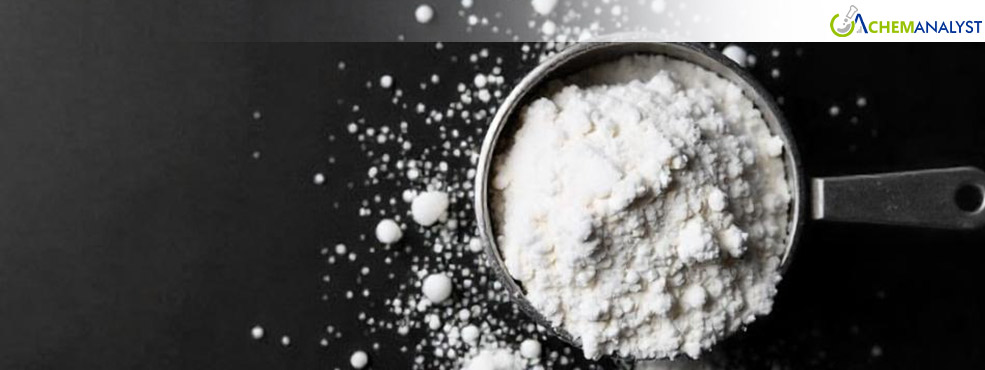Welcome To ChemAnalyst

In the first half of April 2025 the Chinese domestic Glycine prices sustained their positive movement which began in March 2025. ChemAnalyst forecasts that the market will maintain its upward price trajectory through the second half of April because of restricted supply availability and robust industrial consumption combined with increasing product manufacturing expenses.
Market dynamics in March laid the foundation for the current price strength. Falling inventory levels, alongside a surge in demand from key downstream sectors, intensified supply constraints for Glycine. The recent imposition of higher US tariffs on Chinese exports also injected a sense of urgency into global procurement strategies. Many international buyers accelerated purchases in anticipation of further trade disruptions, adding further pressure on limited supply chains. Simultaneously, China’s official Purchasing Managers’ Index climbed to 50.5 in March, its highest in 12 months, signaling a resurgence in manufacturing activity. This uptick in production drove up demand for raw materials, including Glycine, contributing to rapid inventory depletion and heightened competition for key inputs.
Compounding the tight supply situation, raw material costs—particularly Ammonia—continued to rise, pushing up manufacturing expenses for Glycine. Despite a marginal dip in China's Consumer Price Index suggesting some easing in consumer-level inflation, the Glycine market remained under cost-push inflationary strain.
The pharmaceutical and nutraceutical sectors maintained high levels of off-take intensity throughout this period. Pharmaceutical and nutraceutical sectors continue their steady consumption of Glycine as an essential excipient which maintains strong demand for domestic supply. Moreover, importers took advantage of favorable freight rates between China and Western markets through increased export activities.
Geopolitical trade tensions caused buyers to build precautionary inventory stockpiles which contributed to maintaining heightened consumption levels. The combination of low supply replenishments and increased raw material expenses with buyers stockpiling inventory has intensified price elevation.
Market fundamentals show no signs of weakening as suppliers struggle to address existing supply issues which leads analysts to predict Glycine prices will stay strong until the end of April. Active monitoring of trade developments together with inventory changes and input cost patterns will determine how prices evolve in the upcoming near-term for the Chinese Glycine market.
We use cookies to deliver the best possible experience on our website. To learn more, visit our Privacy Policy. By continuing to use this site or by closing this box, you consent to our use of cookies. More info.
